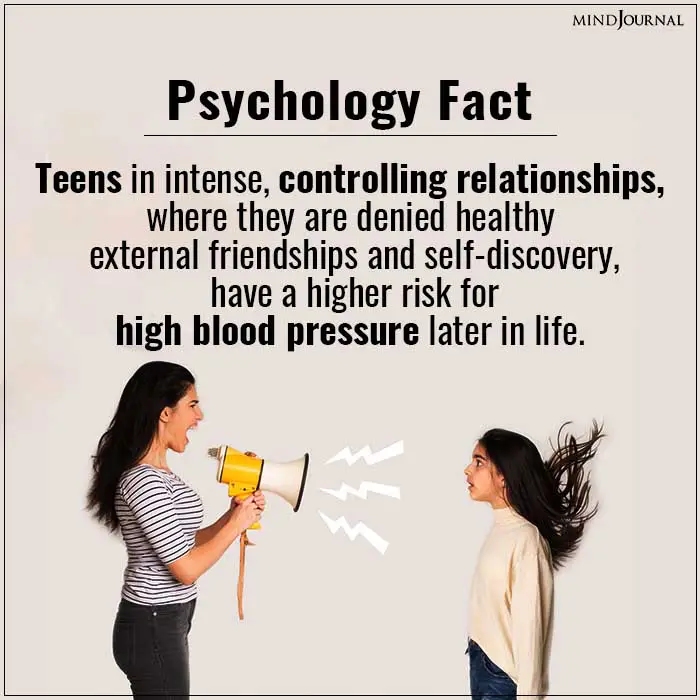Parenting a teenager is never easy, but when your adolescent is defiant or distressed, it’s essential to understand what works and what doesn’t. Here are few strategies for dealing with your teenager.
KEY POINTS:
Moderate your expectations: As recent research confirms, the human brain doesn’t fully develop until about the age of 25. Teens are not adults.
Adolescents are supposed to be oppositional, rebellious, and moody, expressing dissent, disapproval, dissatisfaction, and resentment.
Emphasize empathy. Adolescence is stress-filled for both parents and teenagers, and it's only become more complicated and challenging over time.
It should come as no surprise that teenagers can present special challenges for parents. The central developmental task of adolescence is to move toward becoming independent while continuing to live at home. Separation-individuation requires teenagers to distance themselves from their parents psychologically in preparation to part from them physically.

This process can be extremely difficult to negotiate for teens as well as their parents. But with enhanced, conscious awareness and mindful action, both you and your kids can weather the storms of adolescence and come out of it without capsizing.
Here Are 8 Beneficial Strategies For Dealing With Your Teenager
1. Expect Complaints
Adolescents are supposed to be oppositional, rebellious, and moody, expressing dissent, disapproval, dissatisfaction, and resentment. Most parents naturally interpret this as disrespect and ingratitude, though that’s not necessarily the case at all. Teenage complaints are part of the process of separating and individuating. Just because your teenage kids complain frequently doesn’t mean they lack gratitude for what you have done and continue to do for them. Conscious awareness of this supports your capacity for distress tolerance, making the barrage of complaints more bearable.
Related: How To Discipline Sensitive Children? 5 Science-Backed Strategies
2. Be Selective When Picking Your Battles
Be mindful in determining what to make an issue. When is it truly necessary, and when is it more about needing to be right or be in control? Make allowances for some oppositional attitudes and behaviors that assert independence. Conflict with your teenagers will find you; you don’t need to go looking for it.
Separation-individuation takes many forms that drive parents crazy but don’t have to, from the infamous adolescent eye roll, bottomless sighs, and sarcastic comments to the off-putting assortment of other nonverbal and semi-verbal responses when you ask questions or try to engage your teenagers in conversation, not to mention the rapid escape strategies they deploy to end their interactions with you ASAP. Mindfulness practices can help you become less reactive to these.
If you can give your teens the space to control most of their choices unrelated to safety and welfare, such as how they dress and other aspects of their appearance, it will serve your relationship with them well. You can let them know that you don’t especially like their choices, but they are their choices, and you respect them as such. This helps reduce the likelihood of power struggles in more pressing areas.
3. Moderate Your Expectations
As research confirms, the human brain doesn’t fully develop until about the age of 25; therefore, your teenager’s brain is very much a work in progress. It’s natural to want to treat teenagers who are so close to chronological adulthood like they’re fully capable of logical reasoning, decision-making, and impulse control. But they just aren’t there yet.
Adolescents operate largely from the areas of the brain responsible for emotions. Those areas in charge of rational, longer-term thinking and awareness of potential consequences are still under construction. Instead of assuming they will act and think like adults, prepare yourself for the possibility of impulsive and seemingly irrational behavior from them.
Related: How To Respond To Your Children’s Disappointment: 7 Tips
4. Be Vigilant Without Becoming Peremptory
Separation-individuation includes a certain degree of secretiveness and dishonesty, and some experimentation with alcohol and other drugs is normal. Maintaining ongoing connection and dialogue with your children is vital during this phase of development. Be aware of significant changes in mood and behavior and become informed about those that correlate with problematic alcohol and other drug use, as well as mental health challenges, such as depression and anxiety.
For parents in recovery themselves, these are particularly emotionally charged issues that hit close to home, and the impulse to react strongly and rapidly is understandable. However, many changes in mood, attitude, and behavior that are normative in adolescence also correlate with potential substance abuse and mental health issues. Importantly, correlation does not equal causation. While further discussion of problematic substance use, substance abuse, and addiction is beyond the scope of this article, there are many excellent books that address this important issue.
Keep an eye out for substantial shifts in school performance and attendance, unfulfilled responsibilities, and excessive argumentativeness or moodiness. Do your teenage kids seem depressed or self-injurious? Do you see any indication of self-harming, cutting, or suicidal potential? Monitor these areas, and strive to keep an open dialogue with your teenagers about them, being mindful that anything that comes across as blaming, non-constructive criticism, or shaming will obstruct such dialogue.
If your teenagers come to you with problems, ask if they just need you to listen or if they want you to respond. Potential ways to provide input include, “May I give you some feedback?” “Would it be OK if I made some suggestions?” and “Would you mind if I offered some guidance?”
Although I suggest reserving intensive outside intervention for situations in which your teenager’s health, safety, and/or welfare is at risk, when in doubt, I encourage erring on the side of seeking professional assessment and guidance.
5. Emphasize Empathy
Adolescence is stress-filled for both parents and teenagers. Think back to what it was like when you were a teenager, and consider that adolescence has only become considerably more complicated and challenging. Try to understand, have compassion for, and empathize with the pressures your teens face.
Attempting to coalesce their identity—to figure out who they are and how they fit in the world—is no small task. Ask about and express interest in their experience. If they refuse to talk about it, give them space and let them know you are there for them.
At this crucial time in their lives, among their greatest needs is for someone to appreciate what they’re going through. Your teenagers don’t need you to fix their problems for them. They’ll figure that out for themselves. Rather, they need someone who will listen and empathize with them.
Parents commonly dismiss the opinions of their teenage kids—after all, most teenagers think they know everything. Surprise them by asking for and demonstrating respect for their opinions, even when you disagree with them.
Giving your adolescents the experience of feeling seen and heard strengthens the connection between you and has a mitigating influence when conflicts erupt. If or (hopefully) when your teenagers come to you with problems, again, ask them if they want you to respond or just want you to listen: “Can I/Would it be OK for me to give you some feedback, make some suggestions, or offer some guidance?”
6. Give Your Teenagers Opportunities To Earn The More Adult-Level Privileges They Seek
Far from being entitlements, privileges such as access to a car, smartphone, or spending money should be earned by contributing to the daily functioning of the family, including chores. Connect the dots between such privileges and specific responsibilities with your teenage (and young adult) kids, so they clearly understand the link between more adult-level privileges and certain responsibilities.
If they choose to opt-out of this arrangement or shirk their assigned responsibilities, they also choose to relinquish the associated privileges.
The experience of having this level of choice and being able to influence part of their destiny helps build teenagers’ sense of self-efficacy and deepens their understanding of the relationship between their actions and the consequences of those actions—both positive and negative.
7. Don’t Let Off-Putting Attitudes And Oppositional Behaviors Push You Away
Adolescents are experts when it comes to acting in ways that irritate the hell out of their parents. Whenever we feel threatened—whether it is a threat to life and safety or simply a perceived threat that makes us feel anxious, angry, or stressed—the thinking part of our brain (the prefrontal cortex) shuts down, and the emotional, survival-oriented part of our brain in the limbic system takes over.
This is one of the things that happens during an intense argument with your teenager, and it helps explain why parents can become so emotional and irrational in the midst of heated conflicts with their teenage children.
Try not to get hung up about being rebuffed or rejected when you reach out (remember how separation-individuation works), and continue to make efforts to connect with your teens. Send the message that you can tolerate their oppositional attitude and behavior, and you’re not going anywhere.
In interactions with your teenagers, look for opportunities to express kindness, appreciation, compassion, and love: a warm smile, a hand on the shoulder, a hug with feeling, a kiss on the forehead or cheek, or a heartfelt “I love you.” These small actions have inestimable value and meaning, even if your adolescents don’t show it in the moment.
Related: Oppositional Defiant Disorder: 7 Ways To Safely Parent A Defiant Child
8. Remember, Adolescence Is Temporary
Mark Twain once said, “When I was a boy of 14, my father was so ignorant I could hardly stand to have the old man around. But when I got to be 21, I was astonished at how much he had learned in seven years.” Like other difficult circumstances (and intense emotions), adolescence can feel like it’ll last forever.
And yet, the only thing permanent is impermanence. The challenges of adolescence may last longer than you’d like them to (perhaps much longer), but these are precious years nonetheless, and they will come to an end.
Copyright 2021. Dan Mager, MSW.
References
J. N. Giedd, “Structural Magnetic Resonance Imaging of the Adolescent Brain.” Annals of the New York Academy of Sciences, 1021 (2004): 77–85. doi:10.1196/annals.1308.009.
Rita Sather and Amit Shelat (reviewers), “Understanding the Teen Brain,” University of Rochester Medical Center Health Encyclopedia. https://www.urmc.rochester.edu/encyclopedia/content.aspx?contenttypeid=….
Dealing with a teenager can seem difficult but with effective communication and empathy, anything is possible. Share your tips and thoughts on how to face such situations in the comments.
Written by: Dan Mager MSW Originally appeared on: Psychology Today Republished with permission









Leave a Reply
You must be logged in to post a comment.